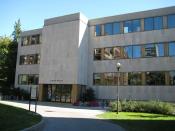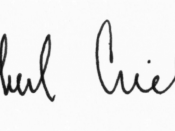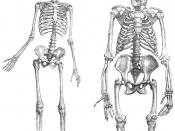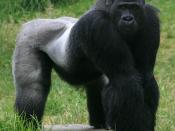According to the critic Northrop Frye, the purpose of literature is to "educate the imagination" and to train us to see "what is possible." I agree with Frye's statement. This holds true especially in fiction but is also evident in nonfiction. In my independent reading book, Congo by Michael Crichton, there are many examples of this critical lens.
Although fiction may be a figment of the author's imagination, it also educates our imagination and allows the brain to become more open to see what is possible.
In a way, we become absorbed in fiction and our minds interpret it as reality. It is also true that reading stirs the imagination, especially horror stories. Congo truly demonstrates this phenomenon. When reading the story, I felt as if I were actually journeying through the jungles of central Africa. The plot was also very provocative and I felt the fear of the characters as their friends and teammates were systematically annihilated.
This book is also a fine example of the critical lens because one of the main characters is a gorilla who takes on the persona of a human.
The gorilla communicates with humans by using sign language. Although it seemed odd at first, I accepted the gorilla as if it were a human. Not only does the gorilla act like a human, it also defends them as if they were of its own species when danger is present. I feel that the critical lens greatly encompasses imagery.
Above all, the tone contributes to the critical lens. In Congo the tone is that of curiosity and fear. The combination of the two creates a deadly mix. However, it also creates a sense of reality and possibility. Although this book lacks figurative language, it makes it up in imagery. The book creates a veritable dreamworld in which you watch from a safe distance. After reading, a feeling a withdrawal surrounds the body. You also wonder if anything such as this could happen in our world. It is an alien, yet interesting feeling. You wish to return to this imaginary world soon.
I agree with Frye's statement. The purpose of literature is to "educate the imagination" and to train us to see "what is possible." Without this, literature loses its main attraction and becomes barren. I cannot imagine a piece of literature that does not encompass this critical lens. Congo by Michael Crichton is an excellent example of this statement.








